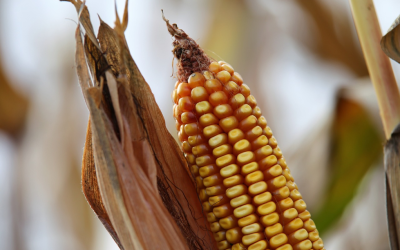Ethiopia’s burgeoning cut flower industry is making a significant impact on the global market, propelled by favorable conditions and strategic advantages. As the 6th largest cut flower exporter worldwide, Ethiopia is witnessing remarkable growth in this sector, contributing to both its economy and employment opportunities.
A Blooming Export Hub
In 2020, Ethiopia’s cut flower exports reached a noteworthy milestone, accounting for a substantial 235 million USD. This impressive figure represents a remarkable 13% of the country’s total exports to the African continent. Key export destinations include the Netherlands, Saudi Arabia, the United Kingdom, Norway, and Seychelles, solidifying Ethiopia’s presence in the global cut flower market.
Driving Forces Behind Growth
Several pivotal factors have catalyzed the swift expansion of Ethiopia’s cut flower industry:
Favorable Climate: Ethiopia’s climatic conditions offer an optimal environment for cut flower cultivation. With elevated altitudes and abundant sunshine, the nation’s warm climate proves conducive to the growth of vibrant and healthy blooms.
Proximity to European Markets: Positioned in close proximity to Europe, the largest cut flower market globally, Ethiopia enjoys reduced transportation costs, facilitating seamless access to European markets and driving export efficiency.
Competitive Labor Costs: Ethiopia’s competitive labor costs make it an attractive destination for cut flower production, rendering it a cost-effective choice for growers and exporters.
Government Support: The Ethiopian government’s proactive stance in nurturing the cut flower industry cannot be overlooked. Offering tax incentives and other benefits to growers and exporters, the government’s support has played a pivotal role in driving growth.
Economic and Employment Impact
Ethiopia’s cut flower sector is a beacon of employment and income generation. Employing approximately 250,000 individuals, this industry is a cornerstone of livelihood for many. With an annual revenue exceeding 500 million USD, the cut flower industry contributes notably to Ethiopia’s economy, constituting around 1% of its GDP.
Challenges on the Horizon
Amidst its flourishing growth, the Ethiopian cut flower industry grapples with a few challenges:
Intense Global Competition: Ethiopia faces formidable competition from other major cut flower exporting countries, such as Kenya and the Netherlands, adding complexity to market dynamics.
Price Volatility: The cut flower market is characterized by unpredictable price fluctuations, making it challenging for stakeholders to plan their operations effectively.
Pests and Diseases: Just like any agriculture sector, the cut flower industry contends with pests and diseases that can undermine crop yields and quality.
Government’s Pledge to Progress
Despite challenges, Ethiopia’s government remains steadfast in its commitment to nurturing the cut flower industry’s growth. This commitment is reflected in infrastructure investments, which aim to enhance transportation networks, including roads and airports, facilitating smoother market access. Additionally, the government provides critical training and support to growers and exporters, fostering skill development and industry expertise.
Prospects for Continued Expansion
Bolstered by government support and the nation’s intrinsic advantages, Ethiopia’s cut flower industry is poised for sustained expansion. The growth trajectory is further underscored by the global trend toward environmentally conscious and sustainably sourced products, aligning well with Ethiopia’s commitment to ethical and eco-friendly practices.
As Ethiopia’s cut flower industry continues to flourish, it stands as a testament to the nation’s ability to harness its natural resources and strategic advantages to thrive in the global market.
With careful management of challenges and thoughtful public-private collaboration, Ethiopia’s blossoming cut flower industry is poised to bloom even brighter, enriching its economy and cultivating a future ripe with prosperity and growth.



